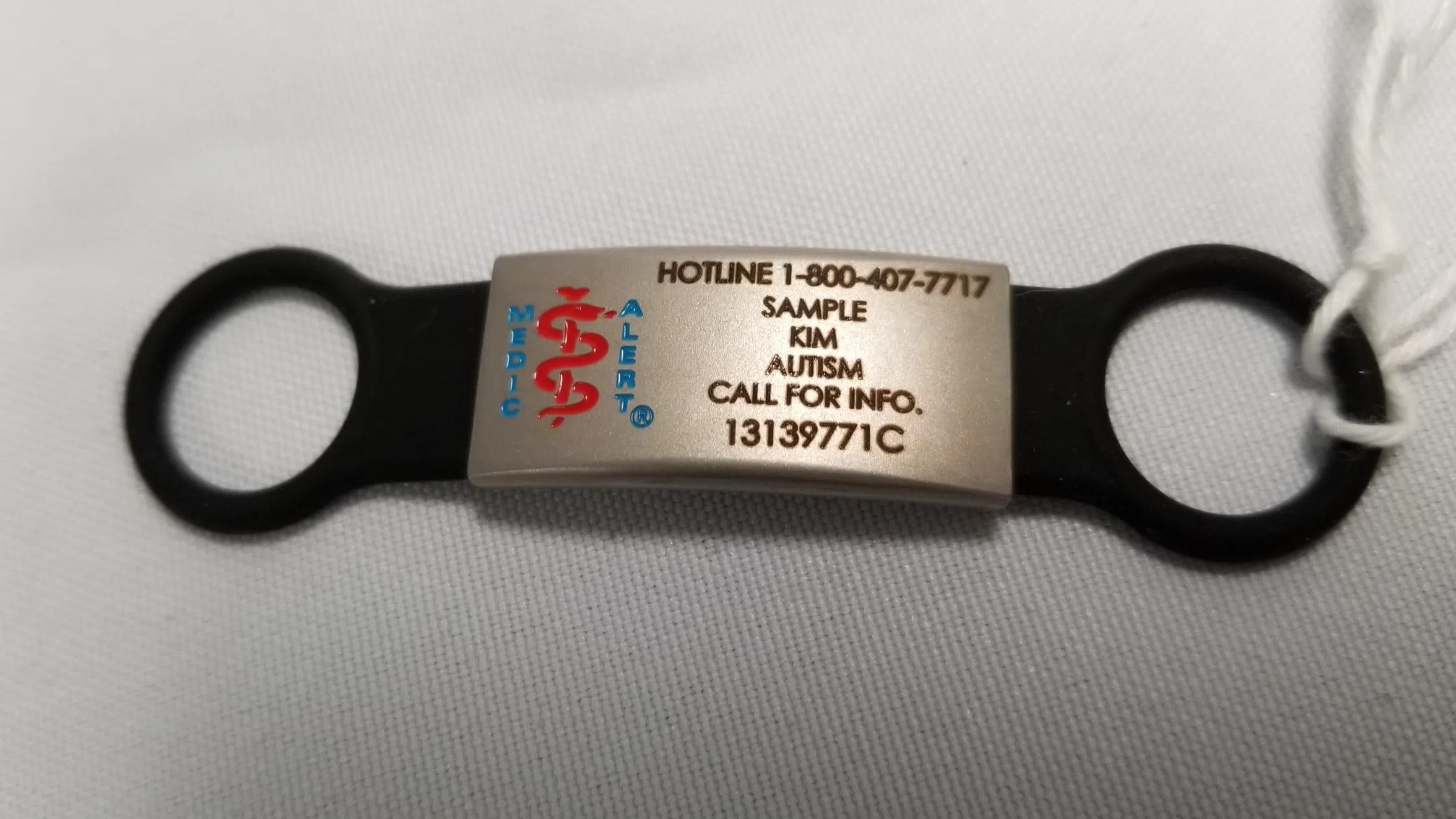
A MedicAlert shoe tag
Police across Ontario are joining a medical identification program to speed up searches for missing people living with dementia, brain injuries, or mental health issues.
OPP Staff Sergeant Jason Belanger says MedicAlert Foundation’s Connect Protect program gives police and emergency responders a person’s medical history, photo, and other information like how to calm the person down if they’re distressed.
MedicAlert’s regular service provides an engraved medical I.D. bracelet, necklace, or shoe tag with any relevant medical information like allergies, or conditions like diabetes. It also includes an identification number to let emergency responders look up a patient’s medical profile.
MedicAlert spokesperson Clint Kimchand says the program is meant to help people who may be confused or can’t speak for themselves, and who have a history of wandering.
“Being able to identify wandering individuals who are in a vulnerable state is critical,” Kimchand explains.
“When you come across somebody who’s suffering dementia or Alzheimer’s, and they don’t have any identification, they don’t know where they are, they’re confused and they’re lost,” Belanger notes, “it’s very hard to return them to their loved ones or find out where they’re missing from.”
He adds it also speeds up the search if family members tell police if their loved one is signed up for the program when making a missing person report.
Thunder Bay Police are also involved in the program, along with police across Ontario and in other communities across Canada.
MedicAlert officials note the program is voluntary and they stress the information on record must be kept up-to-date.









